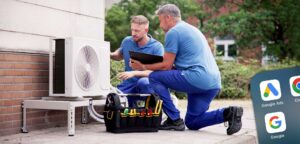
Doctor For Kids in Dubai
A child’s ability to learn, communicate, and engage with their environment depends heavily on their sensory health-especially their vision and hearing. These senses are fundamental channels through which children gather information, develop language skills, and build social connections.
Pediatricians (child doctors) are crucial in monitoring these senses from infancy through childhood, ensuring timely detection and intervention for any issues that might hinder a child’s development. In this article, we will explore how vision and hearing impact your child’s learning and communication, why early screening by doctors is essential, and practical ways parents can support their child’s sensory health.
The Impact of Vision in Learning and Communication
Vision is the primary sense through which children absorb information about the world around them. It influences many aspects of learning and communication, including:
- Reading Ability: Clear vision enables children to recognize letters, words, and numbers. If a child struggles to see the classroom board or the pages of a book, their ability to develop reading skills can be significantly delayed.
- Social Interaction: Visual cues such as facial expressions, gestures, and body language are critical for understanding emotions and social norms. Children use these cues to interpret how others feel and how to respond appropriately.
- Speech Development: Watching the movements of lips and mouths helps children learn how to form sounds and words correctly, aiding their speech clarity.
Such challenges can lead to frustration, reduced participation in classroom activities, and delays in language acquisition, all of which affect academic performance and social communication.
How Hearing Shapes Language and Learning Skills
Hearing is equally vital to a child’s ability to develop language and communicate effectively. From birth, babies begin to learn language by listening to sounds, speech patterns, and conversations around them. Hearing impairments can disrupt this natural process, leading to:
- Delayed speech and language milestones
- Difficulty understanding instructions or following classroom discussions
- Challenges with pronunciation, vocabulary, and grammar
- Social withdrawal or behavioral issues caused by communication barriers
When Vision and Hearing Issues Occur Together
In some cases, children may experience both vision and hearing difficulties simultaneously. This combination can compound the challenges they face, including:
- Lower academic achievement compared to peers with normal sensory function
- Delays in language development and social skills
- Increased risk of emotional difficulties, anxiety, and social isolation
Children with dual sensory impairments often require specialized educational support and therapies tailored to their unique needs. The child doctors coordinate with other specialty doctors to provide a comprehensive support system.
Recognizing When Your Child Needs Proper Vision and Hearing Screening
Parents and caregivers should remain vigilant for signs that may indicate vision or hearing problems affecting learning and communication. Some common warning signs include:
- Frequently misunderstanding or ignoring verbal instructions
- Difficulty following conversations or classroom activities
- Avoiding reading or close-up work
- Poor eye contact or trouble recognizing faces
- Delayed speech milestones or unclear speech
- Complaints of ear discomfort, ringing, or difficulty hearing in noisy environments
If you notice any of these signs, consulting a doctor for kids in Dubai can help initiate appropriate screenings and early intervention.
The Importance of Early Screening and Treatment
Early detection of vision and hearing issues is critical to supporting a child’s development. Child doctors focus on the importance of timely screenings during infancy and early childhood because:
- Early treatment can prevent or minimize speech and language delays
- Children are more likely to succeed academically and socially with proper support
- Early intervention reduces frustration and behavioral challenges related to communication difficulties
- Pediatricians work closely with specialists to develop individualized care plans that address each child’s specific needs.
How Parents Can Support Sensory Health at Home
Parents play an essential role in nurturing their child’s vision and hearing health. Here are some practical ways to support sensory development at home:
- Schedule Regular Screenings: Follow your pediatrician’s recommendations for routine vision and hearing screenings. Early and regular checkups help catch problems before they impact learning.
- Observe and Communicate: Pay attention to any changes in your child’s communication, behavior, or ability to engage with visual or auditory tasks. Report concerns promptly to your pediatrician.
- Encourage Stimulating Activities: Reading aloud, interactive play, singing, and talking with your child help develop both auditory and visual processing skills.
- Create a Supportive Environment: Minimize background noise during conversations, ensure good lighting for reading and homework, and provide opportunities for social interaction to boost communication skills.
Final Takeaway
Vision and hearing are fundamental to a child’s ability to learn, communicate, and thrive academically and socially. These doctors play an essential role in monitoring these senses and guiding families toward early interventions when needed.
For families seeking guidance on child health screenings, consulting a qualified doctor for kids in Dubai is an important step toward comprehensive care. This holistic approach to pediatric health is reflected in the practices at myPediaclinic, where vision, hearing, and overall child development are prioritized to support every child’s growth and well-being.






